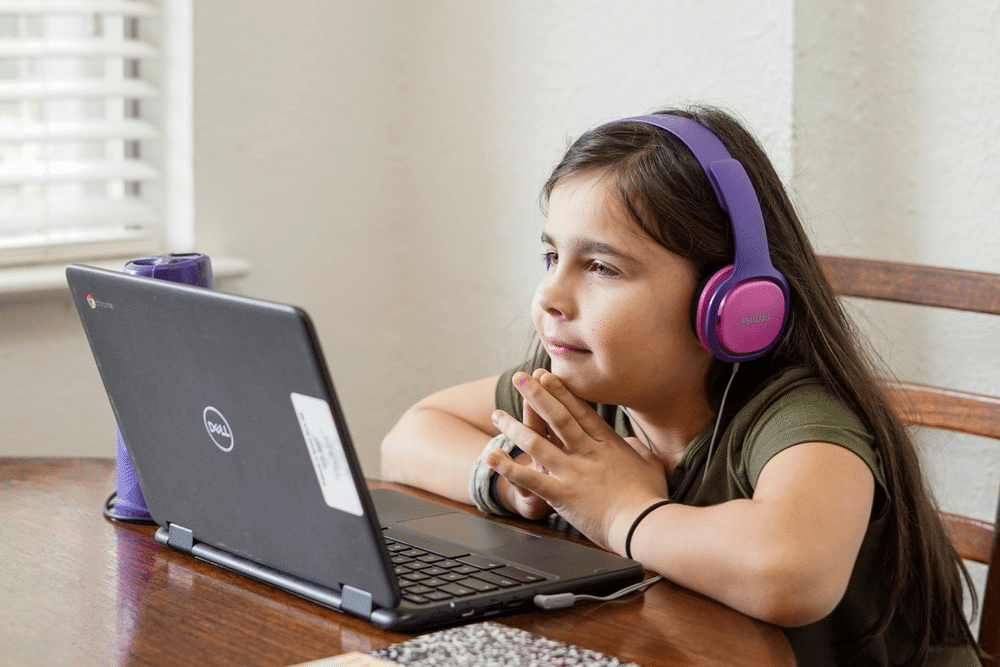
Within the past five years, online schooling has emerged as a robust and effective alternative to conventional schooling. While online schools have been around for over two decades (since the advent of the internet), their popularity has skyrocketed recently.
In light of the pandemic, many parents are switching to reputable online schools in hopes of helping their children enjoy a healthy, balanced, flexible, and diverse schooling experience. Many parents believe online schooling only benefits IGCSE and A Level students. This is a common misconception.
Younger students can benefit tremendously from online learning, provided that their school maintains a high standard of education, boasts a qualified faculty, and equips students with advanced learning tools and resources.
In this blog, we’ll focus on lower school students. Is online learning suitable for 12-year-olds? How does it help them become better learners? Our education specialists are breaking it all down. Keep reading!
1. Individualised Learning

Young students require ample attention, support, and guidance from their teachers. 12-year-old students are in an active academic learning phase. If their teachers mechanically and nonchalantly churn out lessons without making an effort to prompt class discussion and engage students, the outcome will be abysmal.
Students who attend classes in a similar environment fail to absorb and retain knowledge. They cannot develop a healthy interest in their lessons, which reflects their exam performance.
The online schooling model helps students reap the benefits of individualised learning. At Cambridge Home School Online, we maintain a low student-teacher ratio to ensure that every student receives one-on-one attention from their teachers.
For starters, this helps students sustain a deep interest in their classes. Since their teachers directly engage them and ask one-on-one questions, students pay greater attention. As a result, they learn better.
Today, most online schools use the individualised learning approach. In comparison, conventional schools maintain high student-teacher ratios. In some cases, as many as 30–35 students are taught in a single classroom. As you depart from this model, your 12-year-old will reap the benefits of enriched learning.
2. Flexibility

From the age of 12, students start developing their unique interests, hobbies, and passions. They must get a chance to explore these facets of their personality. Unfortunately, the conventional schooling system doesn’t guarantee this.
Students spend an unnecessarily large amount of time in school. They shuffle in and out of classes, wander aimlessly around the campus, and waste a lot of time zoning out during lessons. By the time they return home, they’re too tired to explore their interests. Conventional schooling provides little to no flexibility, which affects children’s academic, personal, social, and extracurricular growth.
Online learning is an excellent alternative to conventional schooling. Students attend well-structured, balanced classes that begin and end on time. They’re not required to spend unreasonable time in the classroom. This additional time is utilised for sports, extracurricular activities, socialisation, skill-building, excursions, explorations, family trips, and so on.
A flexible routine is a healthy routine. As students get a chance to focus on their interests, their mental health improves significantly. This, in turn, strengthens their interest in academics. At CHS Online, our MA/MSc/PhD qualified teachers go the extra mile to retain this interest and help students secure top grades.
3. Skill-Building

The scholastic skill-building process should begin very early, preferably from the age of 8. As students build essential soft and hard skills in the classroom, they become better learners and performers. These skills also come in handy when students pursue higher education and start their professional life.
The online schooling model puts a lot of emphasis on skill-building. At CHS Online, we utilise advanced online learning tools to help students develop critical skills. Our teachers plan a wide range of activities, presentations, and exercises that help students develop respect for their peers, become more organised, understand the importance of teamwork, practice empathy in the classroom, become more disciplined, and so on.
Online schools have a strong focus on moral and ethical development. As a result, students become self-reflective learners who actively contribute to society.
Before you make the switch to online schooling for your 12-year-old, make sure you have an open, honest, and candid conversation with them. Discuss the benefits of online schooling with your child. Present the transition as a positive, exciting change in their life.
This is a great way to build anticipation, excitement, and buzz around the switch! Your 12-year-old will look forward to meeting their teachers, getting to know their peers, and starting a new journey.
Recommended Read: 20 Students Discuss Their Online Schooling Experiences
At Cambridge Home School Online, we teach the Cambridge homeschool curriculum to students across the globe. As one of the most esteemed, trusted, and recognised online British schools in the UK, Europe, Central Asia, South Asia, Africa, and the Middle East, we’re the first choice for thousands of parents.
Explore our four competitive homeschooling programs: Primary Prep/Key Stage 2 (ages 7 to 10), Lower School/Key Stage 3 (ages 11 to 13), Upper School/IGCSEs (ages 14 to 16), and Sixth Form/AS & A-Levels (ages 17 to 19).
For more information, explore the following resources:
- Admissions Process
- Term Dates
- Application Form
- Scholarships & Bursaries
- Grades & Fees
- Online Reviews
Whether you’re interested in high school online learning, school options for working parents, secondary schools in the UK, or primary school programs, CHS Online is the right choice.
If you have any questions, we’re always happy to help! Feel free to give our team a call, email us, or schedule a meeting with our teachers and education specialists.
—
FAQ
How has the popularity of online schooling changed recently?
In the past five years, the significance of online education has grown substantially. This surge in popularity has been influenced by various factors, including the recent pandemic. While online schools have been in existence for over two decades, their recent widespread acceptance is noteworthy.
Is online learning appropriate for younger students, like those aged 12?
Contrary to common belief, online learning isn’t just advantageous for IGCSE and A Level students; it can also be highly beneficial for younger learners, including 12-year-olds. Online schools that maintain high educational standards and offer quality faculty and resources can effectively meet the educational needs of this age group.
What are the benefits of individualised learning in an online schooling environment?
Online schools often maintain a low student-to-teacher ratio, ensuring that each student receives individualised attention. This promotes deeper engagement and focus in the classroom, enabling students to absorb knowledge more effectively compared to conventional settings with higher student-to-teacher ratios.
How does online schooling offer flexibility to students?
Online schooling allows for a more balanced routine, giving students the opportunity to explore their personal interests, hobbies, and extracurricular activities. With well-structured, time-efficient classes, students aren’t required to spend excessive time in a classroom, thereby supporting their overall growth.
What emphasis does online schooling put on skill-building?
Skill-building is a key focus area in online education. Through various activities, presentations, and exercises, online schools help students develop essential soft and hard skills. This not only makes them better learners but also prepares them for their future professional lives.